1969 Chevrolet Camaro
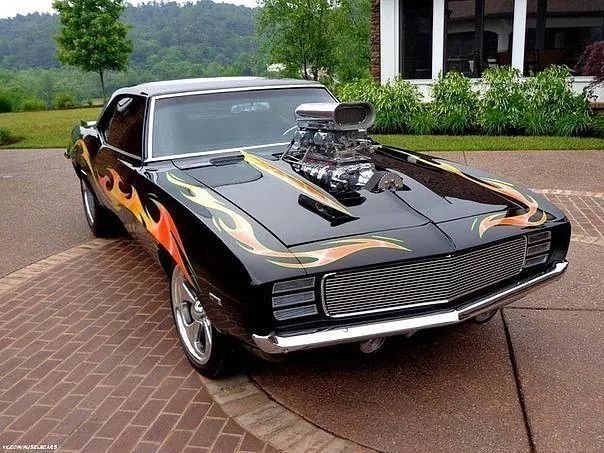
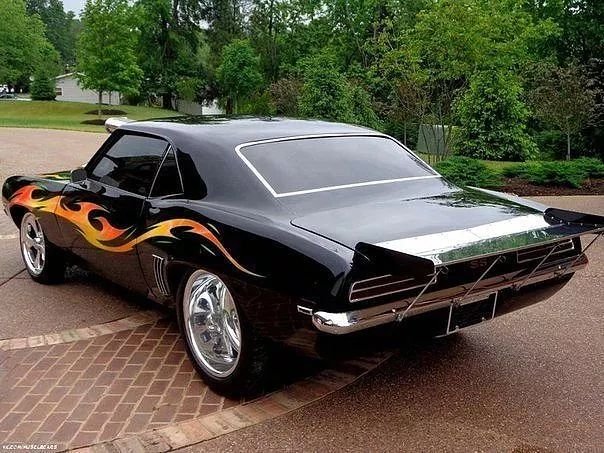
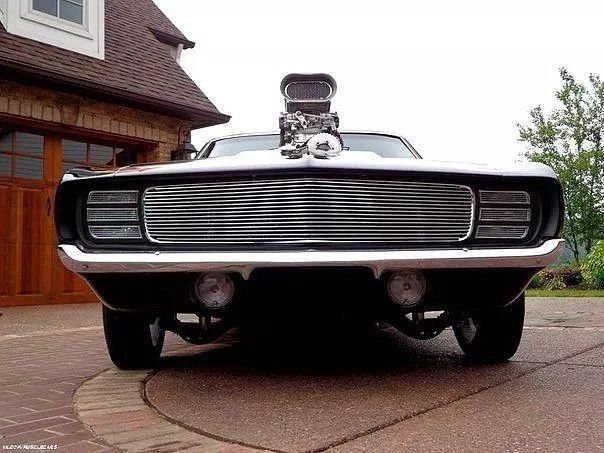
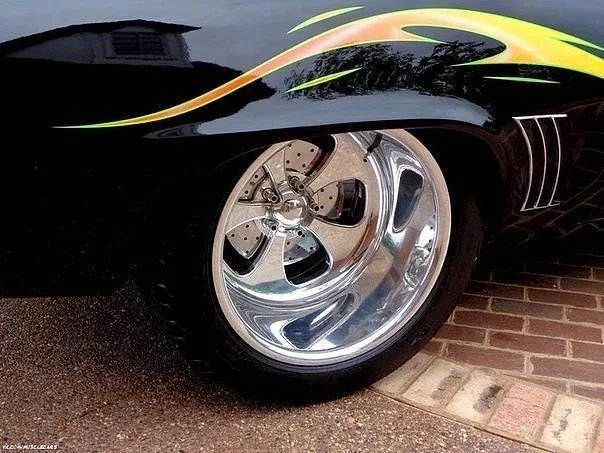
The 1969 Camaro carried over the previous year's drivetrain and major mechanical components, but all-new sheetmetal, except the hood and trunk lid, gave the car a substantially sportier look. The grille was redesigned with a heavy "V" cant and deeply inset headlights. New door skins, rear quarter panels, and rear valance panel also gave the car a much lower, wider, more aggressive look. This styling would serve for the 1969 model year only. Collectors often debate the merits of smooth, rounded lines of 1967 and 1968 model versus the heavily creased and sportier looks of the 1969.
To increase competitiveness in the SCCA Trans-Am racing series, optional four wheel disc brakes with four-piston calipers were made available during the year, under RPO JL8, for US$500.30. [16] This system used components from the Corvette and made for a major improvement (except when sport striping or Z28 Special Performance Package is specified), simulated rear fender louvers, front and rear wheel opening moldings, black body sill, RS emblems on grille, steering wheel and rear panel, Rally Sport front fender nameplates, bright accented taillights, back-up lights below rear bumper; also includes bright roof drip moldings on Sport Coupe. $131.65, 37,773 built. This option could be added to any other option (i.e., SS or Z/28), making the model an RS/SS or a RS/Z28.
The Z28 option was still available with the 302 cid small block. It was backed by Muncie four-speed with a new-for-69 standard Hurst shifter and connected to a 12-bolt rear axle with standard 3.73 gears. The 302 featured 11:1 compression, forged pistons, forged steel crankshaft and connecting rods, solid lifter camshaft, and Holley carburetion on a dual-plane intake manifold. A dual four-barrel crossram intake manifold was available as a dealer-installed option.
The 1969 model year was exceptionally long, extending into November 1969, due to manufacturing problem that delayed the introduction of the second generation model planned for 1970. It is a popular myth late-'69 Camaros were sold as 1970 models (due to GM publicity pictures of the '69 Camaro labeled as a 1970), but they were all assigned 1969
VIN codes.
Production Numbers:
Base: 150,078
RS: 37,773
SS: 34,932
Z28: 20,302
Total: 243,085
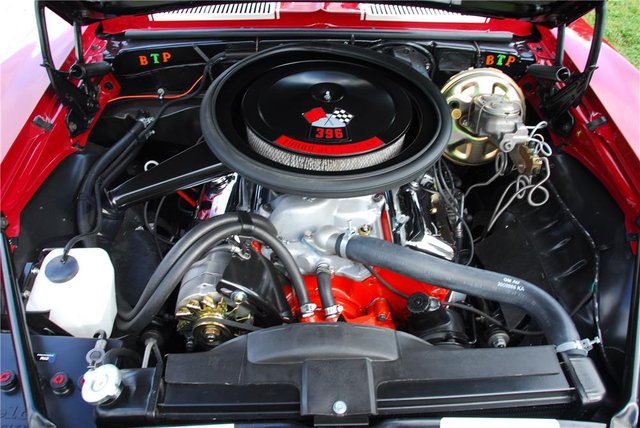
Engine
The standard Camaro was equipped mainly by low-power I6 engines (230 or 250 CID) with 1969 Camaro horsepower rating 140-155 HP but wasn’t popular – car with those engine simply doesn’t have muscle car performance. That is why there were more powerful V8 available for Camaro, 210-HP 327 V8 and 307 cubic inch V8, available exclusively for 1969 model year. The most powerful version available for (except Z28 or SS) Camaro, was 350 cubic inch V8 rated 255 HP.
For a displacement of 6489cm3/396 cui, a gross horsepower of 261KW/355PS /350hp for an SAE gross,this vehicle emulates class with an accompanied gross torque of 563Nm/415ft-Ib.Ask many leading automobile manufacturers and a car’s weight to power ratio of 8.5kg/kW/6.2kg.PS/13.9Ibs/ hp (estimated by a-c) is perfect in its kind.
Next will be a surprise thanks you
The lines of those cars were so damn sexy. You just can not beat the rumble of an old big block engine.
wonderful.... attraction speaks... great design
Posted using Partiko Android
Congratulations @dennisboy! You received a personal award!
You can view your badges on your Steem Board and compare to others on the Steem Ranking
Vote for @Steemitboard as a witness to get one more award and increased upvotes!